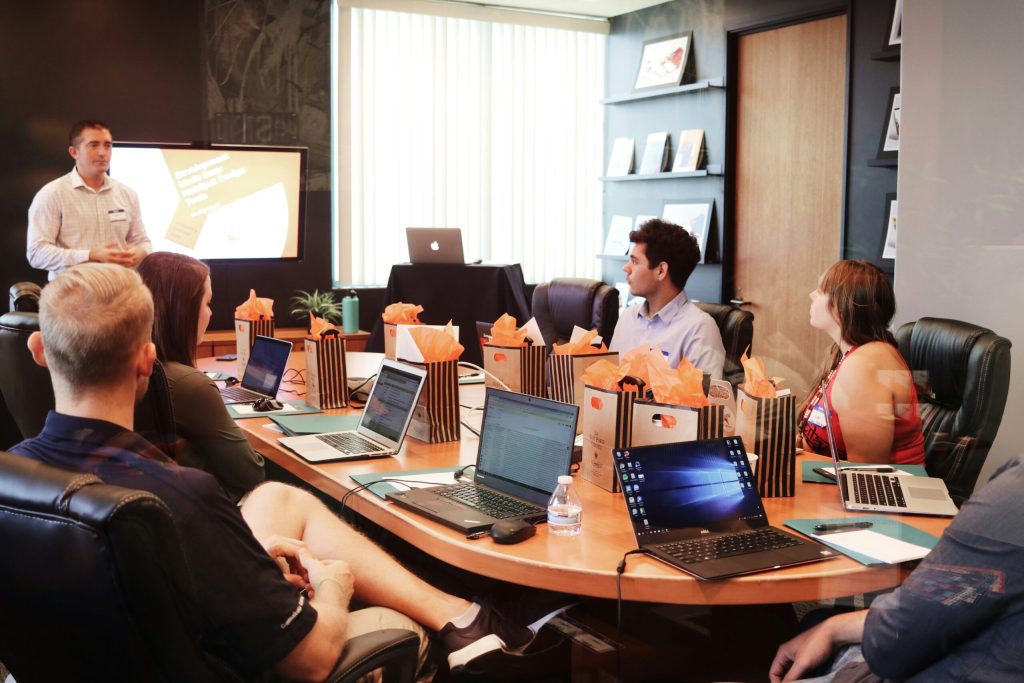Employee Experience Impacts Profit, Here’s How
It’s likely you’ve heard the term ‘employee experience’, because it’s become a hot-topic in the world of work, particularly in forward-thinking human resources departments. Now, while you may think it’s the new ‘buzz-word’, there’s good reason for the fuss. We have entered a period of transformation when it comes to work and the running of organisations. The world has become a global village; digitisation has changed how employees work and has introduced a new set of working standards that skilled individuals are less likely to compromise on. Working from anywhere in the world has been made possible; it’s provided special-skill individuals with the opportunity to freelance, and it’s never been easier for companies to head-hunted talent - think of Linkedin, for example. All of these realities has made it challenging for organisations to attract and retain good staff, and it’s forced organisations to rethink and improve their employee experience. Of course, the department most concerned with all things people, is the human resources department and HR professionals have had to quickly adapt to the rapid transformations brought upon by technology.
The modern HR department is committed to fostering growth, but they’re also, for the first time, directly impacting profit - and it begins with the improvement of employee experience.
Here’s how employee experience impacts profit:
Attracts industry leaders
Today, skilled individuals have many more options when it comes to work and are therefore less willing to compromise. Their decision to work for an organisation will largely depend on three main factors: brand reputation, the opportunity for growth and the work experience they provide. If you think about it, just by improving the employee experience, each of these are achieved. Employees that are engaged, heard, motivated, have their needs met in terms of autonomy, flexible hours or creative freedom for example, are employees that are going to feel incentivised to work harder - which impacts business growth and even brand reputation. Since employee experience is centred around continuous improvement on the part of people and business - through training, constructive feedback and career development - a culture of growth is established. This attracts ambitious, career-focussed individuals that are committed to lifelong learning and career development. These are, of course, the kind of people you want to attract and the ones you want to retain. Good people with invaluable skills and experience almost always improve profit: they’re less likely to make ‘rookie’ errors, more likely to save costs through the refinement of processes, and carry out tasks in the most efficient and effective way.
Retains high-performing staff
High-performing staff are an invaluable asset, which is why it’s essential they are kept happy. Staff loyalty has now become the responsibility of the organisation, and while it can be tricky to navigate it’s certainly made easier if the working experience is a positive one. With tools such as Linkedin, it’s never been easier for individuals to spot greener pastures - and for other organisations to poach good staff, so it’s become absolutely critical for organisations and HR departments to create a competitive employee experience. Employee experience is a variable that HR and the organisation has complete control over, and a variable that greatly influences employee loyalty and profit, making it a significant investment that provides great return. High-performing, skilled staff are hard to come by, and we know a business is only as strong as its team.
Boosts productivity of teams and individuals
Boosting task performance is an ongoing endeavour of the HR department because it directly affects results and impacts profit. Task performance relates to teamwork and collaboration, meeting objectives, task effectiveness and efficiency, minimising error and saving costs, among other things. While staff are expected to meet performance objectives, teams and individuals that are unhappy, demotivated, feel undervalued or over-worked, are micro-managed, and have little creative freedom, etc, will be less incentivised to perform. Work becomes a place to go to make a living, and not a place to flourish, execute skill and build something to be proud of. In fact, organisations will also see a rise in absenteeism, which is damaging to performance, culture and profit. A positive employee experience once again solves the issue of sluggish productivity and static results, and boosts the businesses bottom line.
Improves company and brand reputation
As mentioned, a happy workforce fosters growth and positively affects profit through accelerated performance, and as the business grows in size and profit, so the brand will gain greater recognition in the industry, the market and amongst consumers/customers. This creates opportunity in a variety of spheres, whether it be attracting investors, recruiting highly skilled staff, or merely attracting brand-loyal customers.



